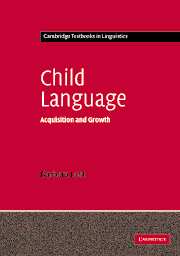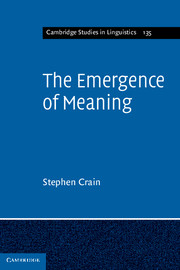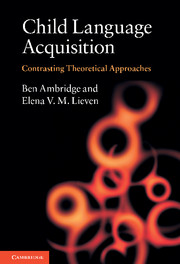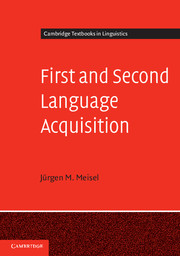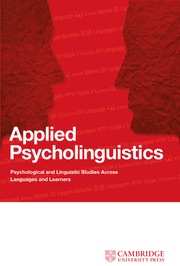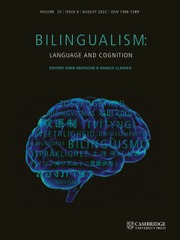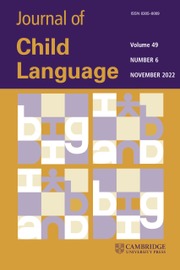Child Language
Exploring language development from birth, this accessible textbook introduces the field of child language acquisition, establishing key theoretical debates. It considers what characteristics of the human mind make it possible to acquire language and to what extent acquisition is biologically programmed and influenced by our environment. It inquires as to what makes second language learning (in adulthood) different from first language acquisition; and whether the specific stages in language development are universal across languages. It will be a key text for courses in linguistics, developmental psychology and cognitive science.
- Merges linguistics analysis with empirical research from developmental psychology
- Looks at acquisition in the three key areas of phonology, semantics and syntax
- Reviews cross-linguistic evidence
Reviews & endorsements
"This volume provides an excellent overview of the theoretical and empirical advances in this field over the past 30 years...The writing is lucid and engaging..." -Susan A. Gelman, University of Michigan: Studies in Second Language Acquisition
Product details
November 2006Adobe eBook Reader
9780511247521
0 pages
0kg
29 tables
This ISBN is for an eBook version which is distributed on our behalf by a third party.
Table of Contents
- 1. The growth of language
- 2. What is acquired?
- 3. What is the problem of language acquisition?
- 4. How we can construct a theory of language acquisition
- 5. Brain and language development
- 6. The nature of nurture
- 7. How can we tell what children know?: methods for the study of language acquisition
- 8. The acquisition of phonology
- 9. The acquisition of syntax
- 10. The acquisition of semantics
- 11. On the nature of language growth
- 12. Conclusions: towards an integrated theory of language acquisition.

